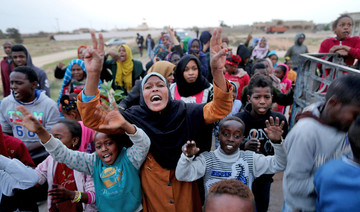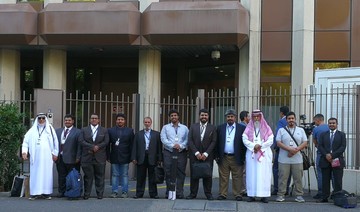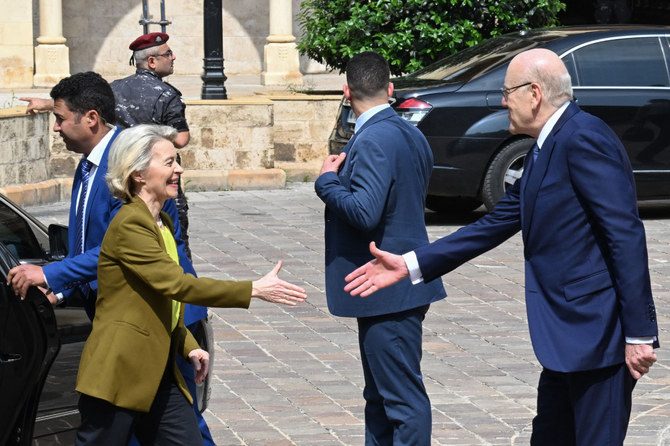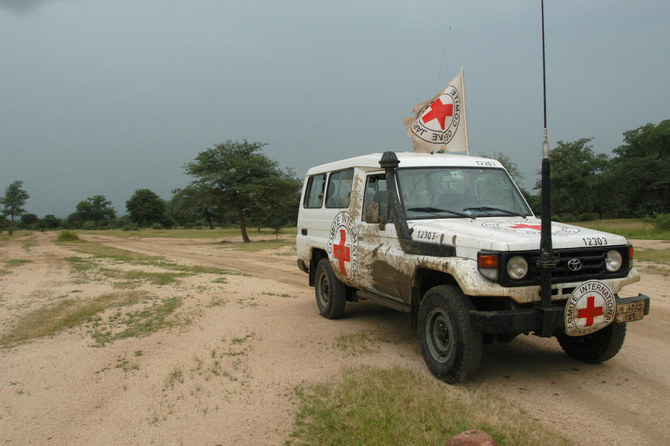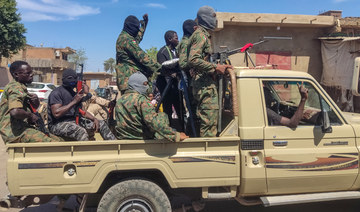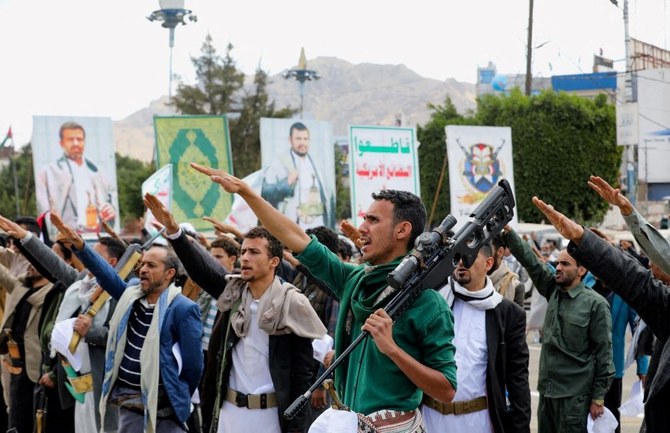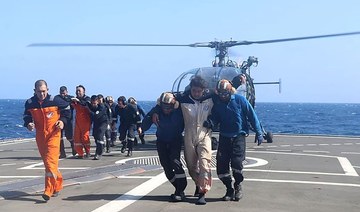GENEVA: A delegation from the Al-Ghufran Tribe, one of the biggest tribes in Qatar, staged a protest Tuesday in front of the United Nations in Geneva to denounce the crimes of the Qatari regime who has revoked their nationality, displaced and tortured members of the tribe.
The tribe called on the international community to take a decisive stand on the Tamim regime, whom, they claim, have violated a number of international conventions and treaties through its racist policy against the Al-Ghufran tribe.
“Our issue with the Qatar regime is purely humanitarian and not political, this is why we came here to present our case and our demands to the United Nations Human Rights Council. Our demands are clear: The Qatar regime should be held accountale for the crimes that it has committed against us and other Qataris, and the restoration of our rights,” Hamad Khaled Al-Marri, a member of the tribe, who took part in the stand, stated.
The protest a wider move by the tribe on the sidelines of the 39th session of the UN Human Rights Council.
A delegation representing Al-Ghufran tribe, one of the biggest tribes in Qatar, which has been subject to systemic discrimination at the hands of the Qatari authorities, handed a letter Monday to the Office of the UN High Commissioner for Human Rights, discussing their deteriorating situation.
The tribe representatives, who had previously submitted a complaint to the Commissioner on September 21, 2017, asked the UN office to stop Qatari authorities’ continuous, systematic discrimination against them, and to protect the tribe’s members, restore their lost rights and to punish the Qatari regime for human rights violations.
“In the previous complaint we summarized the tragedy of the Al-Ghofran clan of the tribe of Bani Mura in Qatar, from 1996 to 2004 to the time of the writing of this petition they were savagely subjected to the worst crimes of racial discrimination, forced displacement, denial of return to their homeland, imprisonment and acts of torture that led to psychological damage and death within the Qatari intelligence prisons,” stated the representatives, whose families continue to face the toughest living situation in Qatar.
In reaction for Al-Ghufran tribe’s opposition to the Regime’s destabilizing policies in the region and its dispute with the neighboring Gulf States, in August, Qatari authorities revoked the citizenship of Sheikh Taleb Bin Lahom Bin Shreim and 54 members of his family who belong to Al Murrah tribe in a step considered as an arbitrary act by various Human Rights organization.
The Arab Federation for Human Rights (AFHR) described the Qatari call as a “revenge” against the members of the tribe for using their natural rights to freedom of expression and movement.
The Qatari authorities took further steps when it confiscated the properties of the members with the revoked citizenship, following the call with a systematic persecution against all the clans belonging to the large tribe, such as Al Ghufran clan.
The Qatari regime has also revoked the citizenship of another senior tribal leader, Sheikh Shafi Nasser Hamoud al-Hajri, a senior member of Shaml Al-Hawajer tribe, which is connected to the famous tribe of Qahtan. Along with the famous Qatari poet Mohammed Al-Marri who belongs to Al Murrah tribe.
Later, Qatari tribe Al-Ghufran declared that 6,000 of its members were forcibly displaced after the Qatari regime deprived them of their Qatari nationality and their national rights.
These heinous crimes are believed to be well-known to Qatari authorities at all levels. “We assure you that the Qatari authorities, ranging from the Emir of Qatar, the Prime Minister, the Attorney General, the President of the National Committee for Human Rights, senior security officials and dignitaries, are aware of the discrimination members of Al Ghofran clan are subjected to and those senior officials are deeply involved in this crime,” the delegation stated, continuing, “Qatar officials are working to hide his crime from the eyes of international justice and human rights organizations, and the deliberately intimidate those trying from within Qatar to raise complaints to International bodies and human rights organizations.”
Fearing for their lives and their ability to voice their opinions or “demand their rights through the National Human Rights Committee in Doha” due to security personnel traching and monitoring their actions, which they say they have evidence off, the delegation spoke of the evidence they have of Qatari authorities treating their people with the utmost levels of brutality and monstrosity.
Labelling them as “brutal methods that batter human dignity,” the delegation explained that “authorities deliberately change the facts and blur a lot of evidence, taking advantage of the ignorance of the victims of their rights, the lack of free local media channels and the absence of the possibility of recourse in the courts of Qatar. The victims of these violations and their families have a right to take legal action against the Qatari officials responsible.”
Revealing the crimes against humanity committed by Qatari authorities towards the tribe—some of which, like deprivation of healthcare or unfair detention, were revealed during the September 2017 Qatar global security and stability conference organized by exiled Qataris in London—the tribe called on the UN Commissioner’s office, recalling its mandate, to help them regain their rights.
“Through your unique mandate to promote and protect human rights, we ask your esteemed commission to see and stand up to the suffering of our citizens who have been deprived of their citizenship in Qatar and to the crimes committed against them and to alleviate the conditions and suffering of our displaced people in the villages and deserts of border areas in neighboring countries. We hope that your intervention will result in achieving human justice on the ground through your objective and impartial treatment of this suffering, and not to only depend on the National Human Rights Commission of Qatar which has unfortunately became an obstacle in our struggle for justice by covering up evidence and spreading false information,” the delegation petitioned.
“We would like to draw the attention of the Office of the High Commissioner to the fact that the fear of oppression and abuse of the afflicted by the authorities of Qatar is what compels our people to remain silent and prevents many of the forcibly displaced from speaking up as they fear that their parents and relatives will be persecuted inside Qatar. The evidence is abundant and available, but the policy of muzzling mouths used by the authorities of Qatar is the obstacle that people fear to try to overcome unless supported by the High Commission by stern protection that enables them to voice their peaceful demands to restore their rights and the appearance of those who have violated their them before fair international justice, and we implore you to refer this complaint to them in light of the absence of the possibility of litigation in the courts of Qatar.”
The pain of the Al-Ghufran tribe has been felt throughout the region, with many calling on human rights organizations and the UN Human Rights Commissioner to protect tribe member.
In September 2017, the Egyptian Organization for Human Rights (EOHR) announced its total solidarity with the case of Al Ghofran clan. “Since 1995, the Qatari authorities have pursued a policy of collective punishment against the tribe of Ghofran that entailed the revoking of the nationality of more than 6000 its tribesmen and many of them were expelled from the country after their property and personal funds were confiscated. It is noteworthy that the tribe of Al Ghofran belongs to the tribe of Bani Mura, which make up about 40 percent of the people of Qatar making them indigenous to this country. EOHR has decided to adopt their cause for several reasons, including the international community’s and human rights organizations’ overlooking of this tragic issue and EOHR's belief in the universality of human rights principles and the need to establish and maintain them in the Arab region,” said Hafez Abu Seada, Egyptian human rights activist and Chairman of the Egyptian Organization for Human Rights (EOHR).
Moreover, Al-Ghufran tribed had filed an official complaint to the Arab Federation for Human Rights about the violations committed by the Qatari regime against its members. It called on the federation to refer the complaint to the United Nations Commission on Human Rights.
Hence, in a letter addressed to the United Nations High Commissioner for Human Rights, President of Arab Federation Ahmad al-Hamli called on the commission to protect the tribe’s members, restore their lost rights and to punish the Qatari regime for such violations.
This was the second complaint filed by the tribe to the UN Human Rights Councils to call on the international community to protect and secure their rights.
The World Aid Organization for Human Rights in New York also declared its complete solidarity with the Arab Federation for Human Rights, which adopted Al-Ghufran’s case.
In its report, the World Aid Organization said that it will cooperate with the Arab Federation and all human rights organizations to highlight this collective tragedy and raise the international community's awareness about it to shoulder the humanitarian and social responsibility and follow up with the tribe members' status.
Previously, the Manama Center for Human Rights also demanded that the international society assign a United Nations envoy specialized in human rights to Qatar to prevent any further violations of human rights.
According to a statement from the center on March 9, 2018, the international mechanisms to preserve human rights should interfere in the Qatari situation and investigate the Qatari violations against its citizens and foreign workers.
The statement also claimed that the Qatari National Committee for Human Rights is not a fair independent organization anymore, as it works for the regime's interests.
The center described the Qatari violations as “a first” in international law and policy.
According to Sky News, Ghufran already issued a first complaint against Doha last September in which they explained how Qatar violated their rights. “We wonder about the reason behind ignoring our first complaint,” the Qatari tribe’s spokesperson, Jaber Abdel Hady, told Sky News on Friday.
With all this, and much more in mind, Abu Saeda ended the complaint by saying, “The Egyptian Organization calls upon the High Commissioner for Human Rights, her excellency Mrs. Michel Bachelet, to open an extensive investigation into this tragedy. EOHR also calls upon Mrs. Bachelet to assist it in its efforts to restore the rights of the clan of Al Ghofran as indigenous inhabitants who have been robbed of their nationalities and forcefully displaced enmasse for political reasons, in violation of all international human rights instruments. Finally EOHR expresses its readiness to provide any documents or evidence that the honorable Commission may need in any of the efforts we hope it will take to stop the suffering of the people of forgiveness.”




